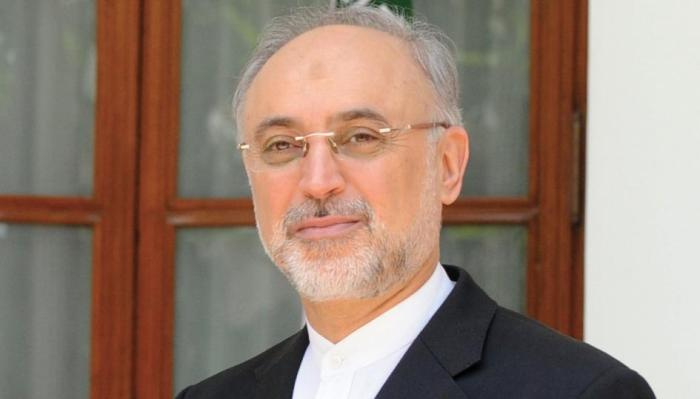Ahmadinejad Was Not Against Secret Talks

In a recent interview with the Iranian magazine "The Diplomat", Ali Akbar Salehi, the current Head of Iran's Atomic Energy Organization and former Foreign Minister in the Ahmadinejad administration, has revealed further details about backdoor negotiations between Iran and the United States in 2011 which laid preliminary steps for the success of the nuclear agreement in 2015. The following is an excerpt of Salehi's remarks in his interview with The Diplomat.
"The Secretary of the National Security Council [Saeed Jalili] was not optimistic towards this approach. They believed that the Americans were unreliable, and negotiations with the US would undermine negotiations with the P5+1 [five permanent UN Security Council members plus Germany]. Some were looking at the case from a political angle, [since] there were rumors that I intended to run for president. But I honestly confessed that I didn't see myself fit for the position."
"When we were informed in mid-1390 [late 2011] that the Americans were interested in having secret bilateral talks with us, our Deputy Foreign Minister Mr. Ghashghavi made a trip to Oman. Salem, an advisor to the Sultan [Qaboos of Oman] tells a companion of Mr. Ghashghavi that Americans are interested in having bilateral nuclear talks with Iran."
"I met the Supreme Leader after he received Sultan Qaboos' letter for mediation, and I told him: 'since we have been negotiating with the P5+1 for several years with no practical result, now that Oman has expressed its readiness and previous experiences have shown that it is a reliable broker, let us step in the path of bilateral talks with the US. He pointed to the United States' previous record, saying that they were unreliable. I told him, 'let us do this so to exhaust all possibilities; either we will reach an outcome, or we'll stay in the same situation we are now.' He showed benevolence and said that he was not against it."
"The Supreme Leader set four conditions. The first one was that negotiations should take place at a sub-ministerial level. Foreign Ministers should not meet. Second, there should be no negotiations for negotiations' sake, like what happened in our years of negotiations with the P5+1 and their abuses. Another condition was that talks should focus on nuclear issues and not other subjects such as [resumption of] political relations. Let me not mention the fourth condition."
Rejecting claims that Ahmadinejad was left out of nuclear negotiations after his insistence on appointing Esfandiar Rahim Mashaei as Vice President: "Mr. Ahmadinejad was not willing to negotiate, but he did not obstruct … he told me: 'Mr. Salehi, be careful. It's a complex issue and you may get hurt."
"Five months after the Supreme Leader's approval, we traveled to Oman. Americans did not think that we were serious in the first round of talks. They told us that we had expressed our readiness for talks four months earlier but only attended then."
"The United States had a strong influence on the P5+1. If they said no, negotiations would stall. So, in these talks [in Oman] we agreed that, after bilateral agreements, they carry out the task of gaining the consent of other P5+1 members … not to negotiate twice. Thus, we circumvented the P5+1 through secret talks with the US."
"In Bahman of 1393 [March 2014] in a meeting with Rouhani and [Ali] Larijani, Zarif said that negotiations had reached a dead-end since Americans insisted on a certain arrangement for centrifuges. After that, Mr. Rouhani asked me to join the nuclear team and this was made possible through Araghchi's call to Ms. [Wendy] Sherman."
"I asked for either of these conditions to be met for me to join the talks: one, I would only attend the talks if my American counterpart attended the talks. As a deputy president, I am not going to negotiate with an American expert. It is against protocol. Second, I would resign from my position in the Atomic Energy Organization. I could serve as Zarif's technical aid in the sessions. Third, American experts could come to Iran and I would negotiate with them here."
"One day, the respected General Ghasem Soleimani called me, informing me that [the Assad opposition] was going to execute 48 Iranian military officers and asked me what to do. I thought of calling Qatar's Prime Minister. I told him: "we see this as your fault. You have engaged in Syria with no reason." He responded that we were betting on the losing horse … I told him: 'Mr. Prime Minister, I have just been informed that they are going to execute 48 of our dear ones tomorrow. If that happens, the least I can say is that we cannot predict the future of our relations'. He told me, 'Mr. Salehi, the only thing that comes to my mind at the moment is to go to Al-Jazeera and ask them on air not to execute these 48 officers.' And he asked me to watch the TV that night … afterwards, the opposition said that in respect to the Qatari PM's message, they would halt their decision."

